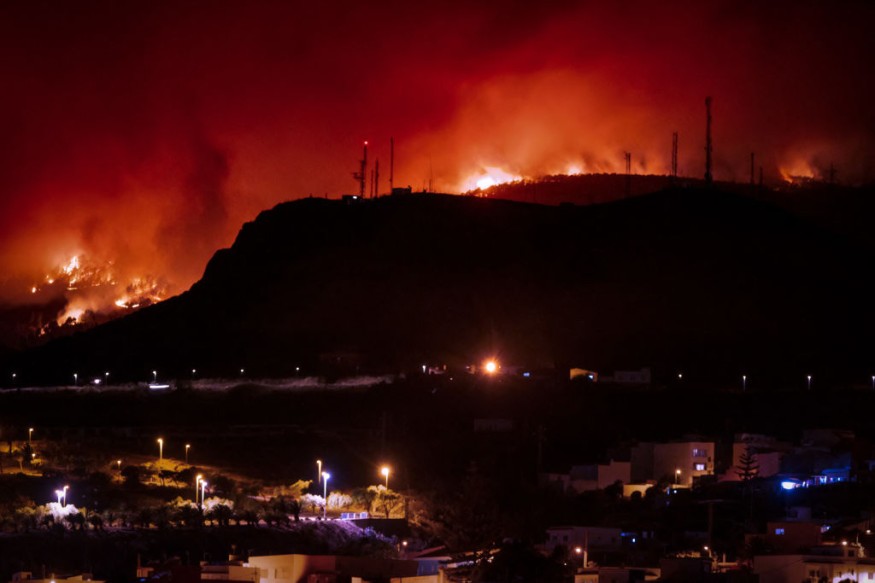A major wildfire in the Spanish island of Tenerife has prompted evacuation of five villages.
The fire has already spread across 22 kilometers (13.7 miles) of dry woodland, devouring both sides of Spain's greatest peak, Mount Teide.
Access to this zone is currently restricted.

The region's leader, Fernando Clavijo, said that the fire is out of control and the outlook is looking bad.
"Our goal for tonight is defensive, so that the fire does not continue its advance. We will carry out operations to protect residents' property," he said on X, the social media platform formerly known as Twitter.
🔥 #IFArafoCandelaria
— Fernando Clavijo (@FClavijoBatlle) August 16, 2023
🔴 El incendio en #Tenerife sigue fuera de control pese al inmenso trabajo desarrollado por los servicios de emergencias. Durante esta jornada no hemos logrado frenar las llamas. El incendio afecta ya a más de 1.600 hectáreas en un perímetro de 22… pic.twitter.com/WttEpraYml
Fight against the fire
The deployment of 14 aircraft and a combined contingent of 250 firemen and military personnel is being utilized to combat the wildfire.
A water-dropping seaplane arrived from mainland Spain on Wednesday afternoon, with two more seaplanes slated to arrive on Thursday morning.
Vicky Palma, a Tenerife council expert on wildfires, stated on Canarias Radio that the expected dip in overnight temperatures to approximately 20 degrees Celsius (68 degrees Fahrenheit) may aggravate wind patterns in the region.
"We don't rule out that tomorrow we'll see intense fire activity," Pedro Martinez, the island's emergency services chief, said in an interview.
All access to the mountains on the island, including a popular tourist spot Mount Teide, has been closed.
"We are doing this to prevent any incidents," Rosa Davila, head of the Tenerife council said.
Evacuation notice
The villages of Arrate, Chivisaya, Media Montaña, Ajafoña and Las Lagunetas were evacuated on Wednesday morning.
According to Canarias Radio, approximately 150 people have been evacuated, which primarily consist of farms and holiday homes.
The local media also reported the General Directorate of Emergencies issues an evacuation notice for Las Barreras, El Rosario.
"People who need accommodation should go to the Andrés Orozco school, in Arafo set up as a hostel," it added.
Even the animals affected of the ongoing fire were evacuated.
To protect the dogs from the smoke, a dog shelter transferred some of its most fragile canines and those with respiratory disorders.
Authorities have advised the residence to follow any evacuation orders and prepare their "go-bag" that contains vital legal and travel documents and identifications.
According to Aena, Spain's airport operator, the two airports on Tenerife are running regularly.
A heatwave has recently hit the Canary Islands, leaving many areas of the already desert-like archipelago extremely dry and increasing the risk of wildfires.
Firefighting personnel have successfully doused a succession of forest fires on the islands of Gran Canaria and La Palma this summer.
Over the summer, Europe has been hit by waves of extreme weather, a situation aggravated by the effects of climate change.
Because of human-caused climate change, heatwaves have become more common, more intense, and stay longer.
The world has already warmed by around 1.1 degrees Celsius since the beginning of the industrial age, and temperatures will continue to rise unless governments around the world drastically reduce emissions
Related Article : Rain Helps Reduce Intensity of Massive Wildfire That Killed a Firefighter in Spain
Related Video:
© 2026 NatureWorldNews.com All rights reserved. Do not reproduce without permission.





